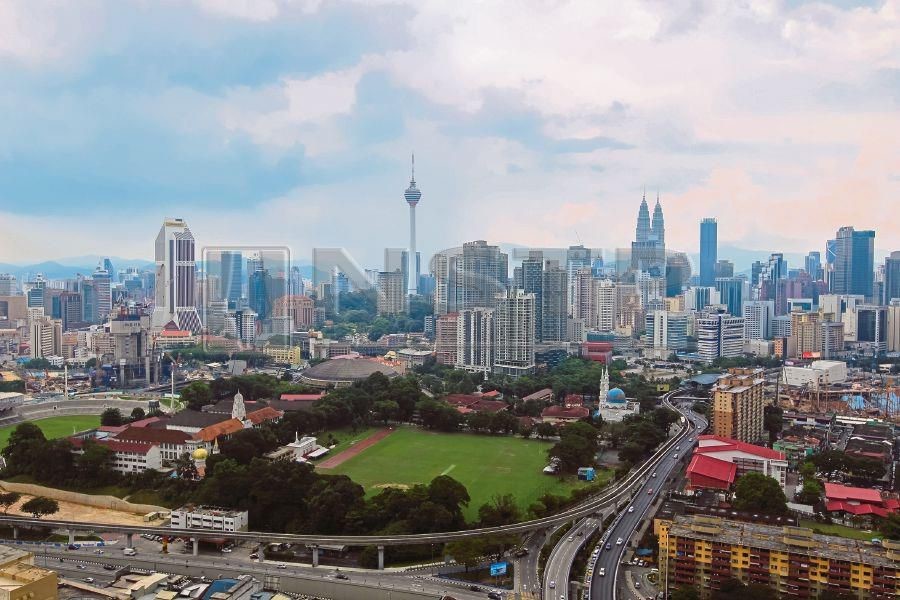IT has been eight months since Pakatan Harapan formed the federal government. Although the PH government has elucidated much of its short-term policy direction thus far, the long-term goals are still uncertain. In the meantime, analysts will continue to fall back on Buku Harapan for clues.
Recently, Youth and Sports Minister Syed Saddiq Syed Abdul Rahman said that the now-defunct National Transformation 2050 programme would be dissected and re-evaluated. In shaping post-Vision 2020 Malaysia, good ideas generated from the programme should not go to waste.
Formulating long-term and lofty targets is not the most challenging part of this exercise. The Buku Harapan, the present state of affairs and future aspirations should find their sweet spot before we allow ideas to turn into action. The hardest part, perhaps, is to ensure that we do not fall into regulatory capture so easily as in the past.
In the era of New Malaysia, resistance to change should be a thing of the past. But despite having the mandate to change, the public continues to be in two minds about how Malaysia should change alongside the global economy. On the other hand, the demand for structural reform is loud and clear. But on the other, when policies do change as demanded, the resistance to reforms is much more pronounced than anticipated.
The lack of appetite for behind-the-border reforms is hampering Malaysia’s growth prospects. The external environment could easily upset our applecart, thanks to the United States-China trade tensions, Brexit and the sluggish global trade growth, among others. In revitalising the economy in the post-Vision 2020 era, how should the government expand the economic pie and more?
As a small and open economy, putting the country back on the globalisation track is the most logical thing to do. But tensions arise when there are those among us who hold strong ideological or geopolitical perspective when debating this issue.
The narrative usually stems from the perspective that bigger economy(ies) will use their considerable influence and might to achieve their own national interests instead of our own. As a result, any move to realign our policies to complement major economic powers, whether with the US, China or the European Union, is often rejected outright.
To be fair, there are legitimate reasons to be sceptical about big ideas involving major powers. However, are our national interests best pursued with or without the big guys? Or can we afford not to?
Vested-interest groups and protected industries are natural opponents of any measure of market liberalisation. Therefore, policy changes must move in tandem with the inevitable — demographic changes.
There are genuine concerns about the impact of trade and investment liberalisation on social groups that represent the poor, disabled, low-paid workers, health and the environment. Whereas economists generally justify economic openness by pointing to the benefits of net welfare gains from trade, there are those who reject trade agreements despite adequate policy interventions being in place.
Some argue that trade agreements would lead to greater economic inequality when income distribution has nothing to do with it in the first place. It is a fact that redistribution cannot happen if the economy suffers from an inefficient allocation of resources. The key policy decision here is to reform domestic taxes as trade liberalises.
It appears that the government is on the right track in reforming labour laws in line with global standards. Despite being a member of the International Labour Organisation, the country has not ratified the organisation’s core conventions. Higher labour standards and rights should be strived for, being in line with Malaysia’s eventual aspiration to reach high-income status, which can mathematically happen before 2024.
However, much legislative work needs to be done before deregulation can reach the expected standards. As outlined in the 11th Malaysia Plan Mid-Term Review, the key labour laws such as Employment Act 1955, Trade Union Act 1959 and Industrial Relations Act 1967 will be amended this year. Since our labour laws have been stagnant for decades, the government must find the right formula that would best preserve the delicate balance of industrial relations in the country.
All in all, political stability is paramount. We should not be subjected to constant realigning of public policy due to political differences. National interests should stay the same, regardless of who holds public office of the day.
There is no one-size-fits-all solution to the growing pains of a developing nation.
Crossing the high-income nation threshold is the first step in the right direction and policy focus can be redirected towards further income and wealth redistribution in the middle-to-long-term perspective.
When the rubber meets the road, it is the process and not the destination of becoming a developed nation that matters the most.





